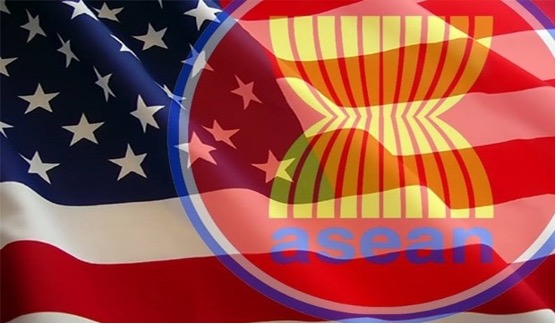Tổng số bài đăng 465.
As the US enters the last campaign weeks of the 2024 presidential election, scheduled for November 5, global markets are closely monitoring the potential shifts in policies that may impact trade, investment, and geopolitical stability.

Southeast Asia, one of the fastest-growing regions globally, is highly sensitive to shifts in US economic and foreign policies. With deep trade ties, significant foreign direct investment (FDI), and shared security interests, the outcome of the US presidential election—whether it results in continuity under Democratic President Kamala Harris or a shift with the return of Republican President Donald Trump—will have wide-ranging implications for Southeast Asia’s economies.

- Trade policies and tariffs: Key to export growth
One of the most immediate concerns for Southeast Asian economies is how US trade policies might shift after the election. Historically, the region has been a key beneficiary of globalization and open trade policies, with countries like Vietnam, Malaysia, and Thailand relying heavily on exports to the US for their economic growth. The imposition of tariffs, as seen during the US-China trade war, poses significant risks to these export-driven economies.
A more protectionist US administration could lead to higher tariffs on goods exported from Southeast Asia, particularly in sectors, such as textiles, electronics, and agriculture. These industries are highly sensitive to changes in trade costs, and new tariffs could significantly reduce their competitiveness in the US market. Countries like Vietnam, which have positioned themselves as alternative manufacturing hubs to China, could face reduced demand if trade tensions escalate.
On the other hand, an administration that favors re-engagement in multilateral trade agreements could provide a major boost to the region. The Comprehensive and Progressive Agreement for Trans-Pacific Partnership (CPTPP), from which the US withdrew in 2017, could see renewed interest. US re-entry into the CPTPP would provide Southeast Asian nations with enhanced market access, lower trade barriers, and more robust trade relationships with the US.
- US-China rivalry: Strategic balancing for Southeast Asia markets
One of the defining features of US foreign policy over the past decade has been its relationship with China. For Southeast Asia, the intensifying rivalry between the two superpowers presents both opportunities and risks. Many ASEAN countries share deep economic ties with both the US and China, leading them to adopt a delicate balancing act in maintaining these relationships.
Should the US government continue its hardline stance on China—which finds support on both sides of the political aisle—Southeast Asian nations could find themselves under increasing pressure to align with one side. The imposition of US sanctions or restrictions on Chinese companies could disrupt the highly integrated supply chains that run through Southeast Asia, particularly in technology sectors like semiconductors and electronics.
However, the US-China rivalry also creates opportunities for Southeast Asian markets. As US companies look to diversify their supply chains away from China, countries like Vietnam, Indonesia, and the Philippines stand to gain from increased manufacturing investment. The “China+1” strategy, where companies maintain a base in China while setting up operations in neighboring countries, has already begun to benefit Southeast Asia, and this trend could accelerate post-election.
- Foreign direct investment (FDI): Investment flows at risk?
Foreign direct investment from the US has been a critical driver of growth in Southeast Asia, particularly in sectors like manufacturing, technology, and infrastructure. A change in US administration could significantly influence the flow of FDI into the region, either by encouraging investment through trade liberalization or discouraging it through protectionist policies.
A pro-business US administration that prioritizes free trade and international partnerships is likely to foster stronger investment ties with Southeast Asia. Tech-savvy nations like Singapore and Malaysia, which are positioning themselves as innovation hubs, could see an influx of capital in sectors like fintech, artificial intelligence, and renewable energy. Similarly, countries like Indonesia and Vietnam, with their large populations and rising consumer markets, could attract investment in infrastructure, consumer goods, and digital services.
However, if the US pivots towards economic nationalism and seeks to incentivize companies to bring manufacturing jobs back to American soil, Southeast Asia could experience a slowdown in FDI.
- Supply chain realignment and regional opportunities
The global supply chain disruptions caused by the COVID-19 pandemic and the US-China trade war have prompted the US to rethink its reliance on China for manufacturing. Southeast Asia has emerged as a key beneficiary of this realignment, with countries like Vietnam becoming major players in global manufacturing.
If the US election results in an administration that continues to push for supply chain diversification, Southeast Asia is well-positioned to attract even more investment in manufacturing. Sectors like electronics, automotive, and textiles could see significant growth as US companies look to reduce their dependence on China and establish production facilities in countries with lower labor costs.
However, challenges remain for the region. Infrastructure deficits, particularly in logistics and transportation networks, need to be addressed if Southeast Asia is to fully capitalize on these opportunities.
(Source: ASEAN Briefing)









